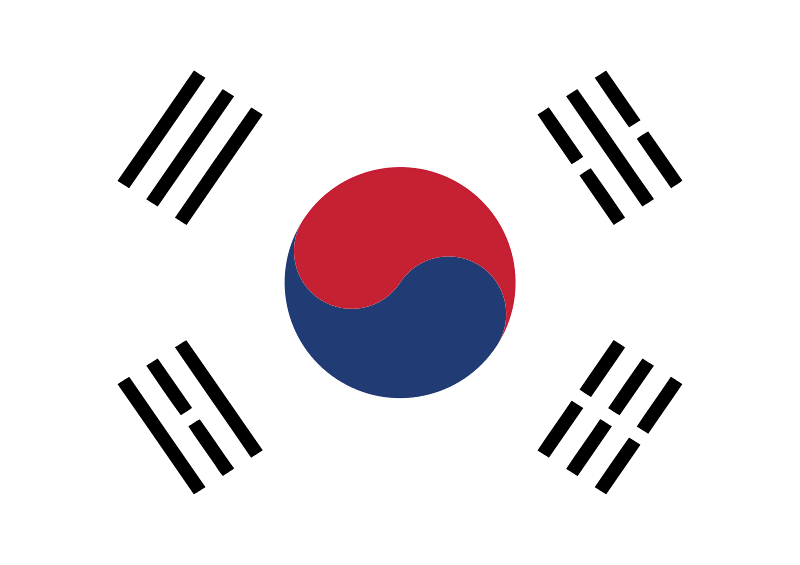
Background:
1 Jan. 2015, Korea REACH (Act on Registration and Evaluation of Chemical Substance) officially took effect. According to the requirements of K-REACH, all new chemical substances and 510 priority existing chemicals (the annual manufacturing/ importing amount >= 1 ton) must submit registration applications to the competent authority. The 510 priority existing chemicals must be registered prior to 1 Jul. 2018. Meanwhile, enterprises manufacturing/ importing new substances or existing substances (>= 1t/a) shall also submit the annual report including the volume, use information in previous year before 30 Jun in the following year..
Please click the following link to confirm whether your substances belong to 510 priority existing chemicals:
http://ncis.nier.go.kr/en/main.do
Dec. 2016, The South Korea Government started to amend the existing K-REACH. The K-REACH was revised sharply. The amendments include:
- All
existing substances (>= 1t/a) must complete registration;
- New
substances < 100kg only require notification;
- The
fine occurred due to illegal acts is clarified;
- Simplifying
data requirements for non hazardous substances are simplified;
- Adding
the exemption conditions for the registration of some specific substances;
- Adding
the requirements for the transfer of chemical information in supply chain; and
- Improving
the assessment method of chemicals in NIER.
Current Situation
The amended K-REACH will be implemented from 1 Jan. 2019. But the registration of 510 existing chemical substances is not affected. That is to say, if one substance is one of the priority existing chemicals, yet the substance was not registered, then the substance cannot be manufactured or imported into South Korea from 1 Jul. 2018 until the registered substance is officially approved by the authority. Besides, pre-registration is also introduced into South Korea. Enterprises must submit pre-registration to the competent authority between 1 Jan. 2019 and 1 Jul. 2019 for existing substances exceeding 1t/a. If enterprises fail to complete the pre-registration of one substance in time, then the enterprise cannot continue to manufacture/ import, use or sell the substance from 1 Jul. 2019.
According to the estimates of Ministry of Environment (MOE) in South Korea, approximately 7,000 existing substances will complete pre-registration in South Korea. If an oversea enterprise needs to complete a pre-registration, it can appoint an only representative located in South Korea to submit pre-registration for it.
Substances completing pre-registration may benefit from a transitional period. , the transitional periods are varied depending on the pre-registered tonnage band and hazards of substance. Details are as follows:
1. 31 Dec. 2021 Deadline: approximately 1,100 substances
CMR Substance (1t/a and above) and existing substances (1,000 t/a and above)
2. 31 Dec. 2024 Deadline: approximately 1,100 substances
Existing Substance (100-1000t/a)
3. 31 Dec. 2027 Deadline: approximately 2,000 substance;
Existing substance (10-100 t/a)
4. 31 Dec. 2030 Deadline: approximately 2,300 substances
Existing substance (1-10t/a)
The CMR substance List will be released by MOE.
Currently, the Amended K-REACH was approved and released to the public. However the sub-regulation of the amended K-REACH is still under review. Once the sub-regulation of the amended K-REACH is approved and released to the public, the Amended K-REACH will be cleared.
Suggestion:
Chemical enterprises trading with Korea need to confirm with Korean importers whether the Korean importers will comply with K-REACH or the chemical enterprises shall comply with the K-REACH instead. CIRS warmly suggests that related enterprises should appoint an only representative to respond to related obligations. By querying the official website (http://ncis.nier.go.kr/en/main.do), enterprises can confirm whether the substance is a new substance. If the substance is a new substance and its amount is over 100kg, then the new substance shall be registered; if the substance is an existing substance and it is also one of the priority existing substances (over 1t/a), then the substance must be registered before it is exported to Korea. But if the existing substance (the estimated amount is over 1t/a) does not belong to priority existing substances, it suggested that related enterprises shall complete the pre-registration in 2019 as early as possible.
Related Article:
South Korea Ministry of Environment Released Draft Sub-Regulations of Amended K-REACH

